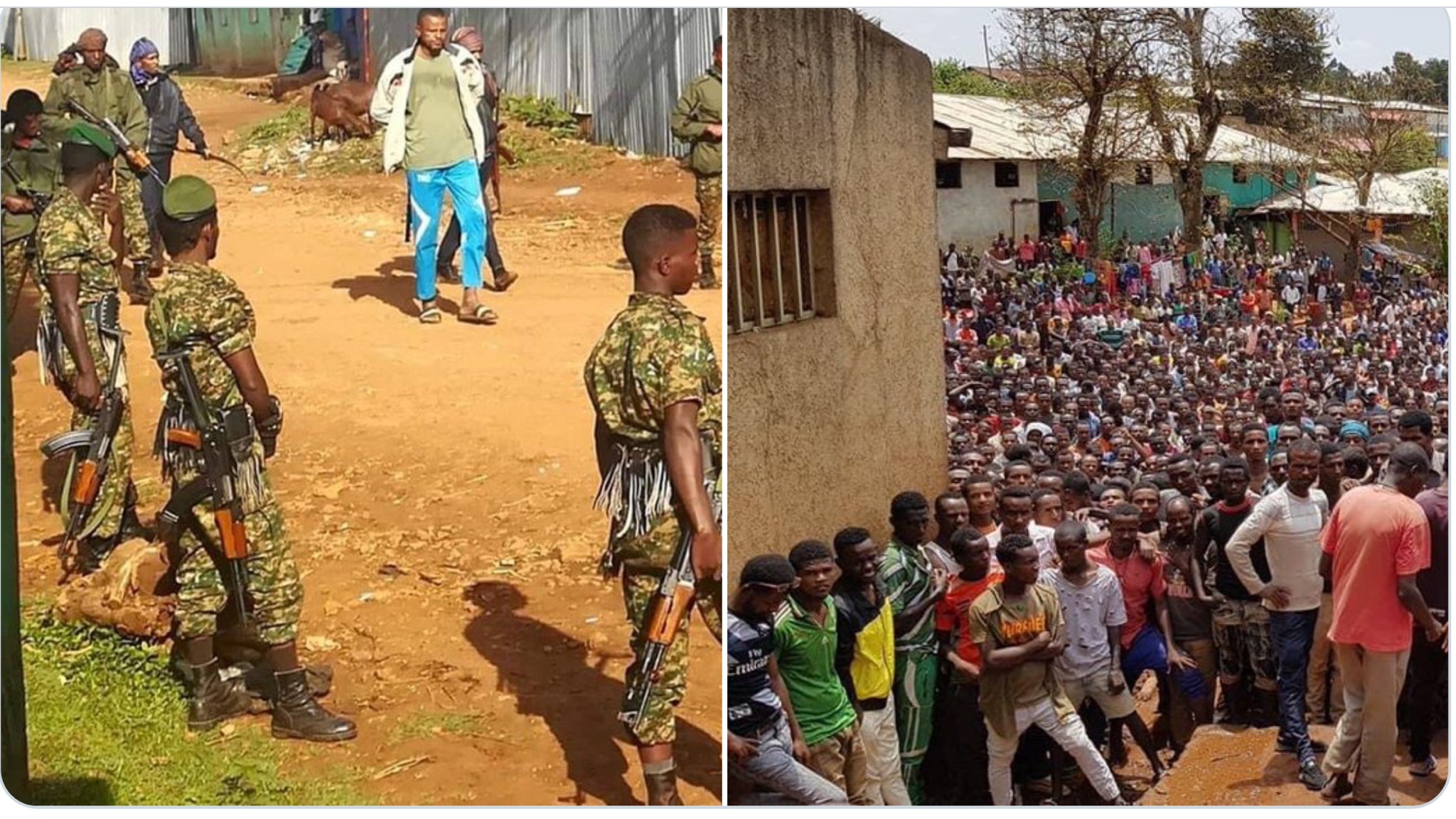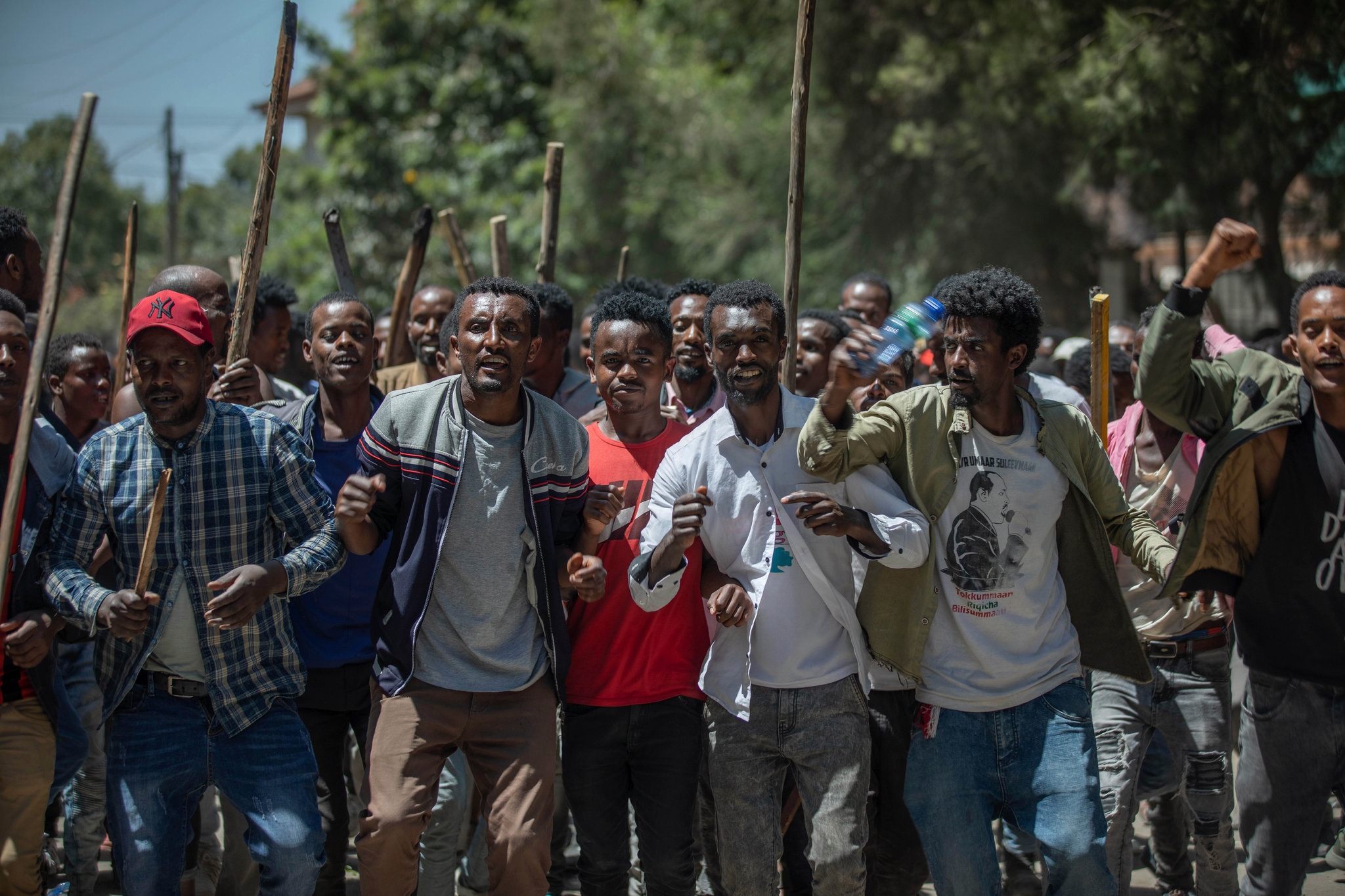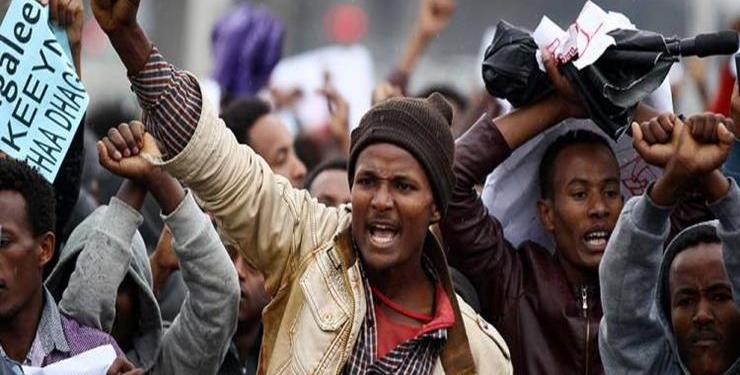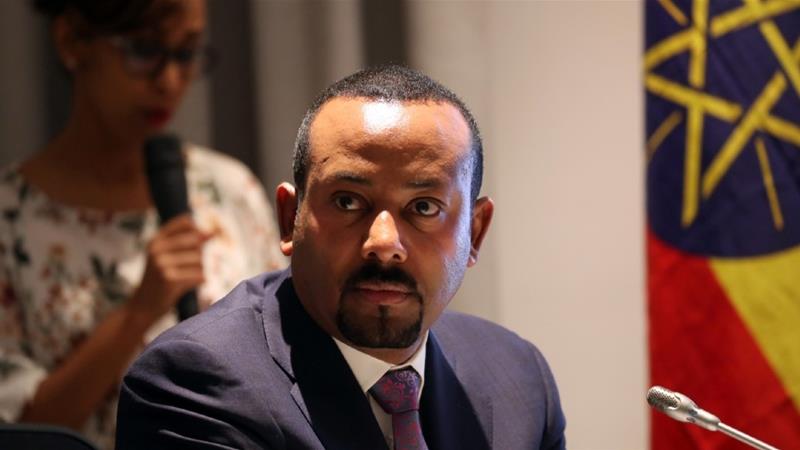As Ethiopia grapples to solve its multiple security issues ahead of the elections this year, an international human rights group has accused the East African nation’s security forces of arresting opposition supporters.
In a statement on 27 January, Amnesty International said Ethiopia had arrested 75 supporters of the Oromo Liberation Front (OLF) over the weekend.
- According to the human rights group, among those arrested was Chaltu Takele, a prominent political activist who spent more than eight years in prison before her release in 2016. She was also arrested twice after, in 2017 and 2019.
- Amnesty International also said the most recent arrests are part of a systematic arrest and release of opposition figures that has been going on since February 2019. Those arrested are taken for “rehabilitation training”.
Deprose Muchena, Amnesty International’s director for East and Southern Africa, said: “The return of mass arrests of opposition activists and supporters is a worrying signal in Ethiopia. These sweeping arrests risk undermining the rights to freedom of expression and association ahead of the 2020 elections.”
The home front
Just months ahead of the elections, Addis Ababa is trying to solve multiple security issues, as the number of hate crimes increase.
- Parts of Western Oromia have been shut off from the internet and phone services since late 2019. At a press conference in mid-January, EthioTelecom CEO Frehiwot Tamiru acknowledged the shutdowns and said they were “connected to peace and security” in the area, according to the Addis Standard.
- Several Ethiopian media houses have reported that OLF-Shane, the military splinter wing of the OLF, has been waging war against the government in the Kelem Wollega region.
Last November, Prime Minister Abiy Ahmed’s government deployed security forces to universities in Amhara and Oromo regions after a spate of ethnic-based clashes left three students dead. As the government closed down several universities, 18 students —14 of them female —were abducted while on their way home from Dembi Dollo University in Oromo.
- Both the Oromo Liberation Army and the government have accused each other of abducting the students, the VOA reported.
The government said it had secured the release of 21 of the abducted students, but the whereabouts and fates of the other 11 remains unknown.
In addition to these ethnic-based clashes, there has been a marked rise in religious-based hate crimes.
On 21 January, the Anadolou Agency reported attackers vandalised shops and other properties owned by Muslims in what has become a pattern of such attacks and counter-attacks in parts of Ethiopia.
Ethiopia’s elections, the first democratic exercise in 15 years, are scheduled for later this year. Some opposition groups have proposed they be postponed because of the escalating security issues as well as seasonal ones. The elections will tentatively be held in August, which also happens to be the rainy season in the region.
The regional and global issues
Meanwhile, PM Ahmed also has to grapple with security threats from outside of Ethiopia. For example, Israel suspended planned student trips to Ethiopia “following warnings against travelling to Africa by the Foreign Office.” Tel Aviv had already suspended direct flights to Addis Ababa, as part of measures to prevent attacks on its citizens during the ongoing US-Iran conflict.
On Monday, 27 January, the Prime Minister and two of his regional counterparts, Eritrea’s Isaias Afwerki and Somalia’s Mohammed Farmajo, agreed to work together and form a joint front in the region, promising to work together to deal with terrorism.
“The three leaders adopted a Joint Plan of Action for 2020 and beyond focusing on the two main and intertwined objectives of consolidating peace, stability, and security as well as promoting economic and social development,” a joint communique available on the Somalia President’s websites says.
- They also discussed security, as Somalia has been grappling with being the staging ground for home grown and international terror networks in the region. The three leaders said they agreed “to combat and neutralise the common threats they face, including terrorism, arms and human trafficking and drug smuggling”.
- And in a sign of their growing camaraderie, they also promised to prioritise their plan to “build, modernise and interface their infrastructure and develop their production and service sectors”.
The meeting in Asmara was the second time the three leaders had met to discuss how to navigate their multiple, related economic and social issues. With both Somalia and Ethiopia set for elections in 2020, there are mounting concerns of how their internal security issues could shape not just the polls, but also the Horn.
Nile dispute
Another regional issue that could play a role in the polls is the Nile Dispute. Ethiopia, Egypt and Sudan are also set to start for a second round of negotiations. The first round of talks, which were also hosted by Washington, collapsed amidst controversy of US President Donald Trump’s gaffe about which peace talks his diplomats were involved in.
- Both Ethiopia and Egypt have stuck to their talking points on the main issues, which include assurances of how much water Cairo will get, and how fast Addis Ababa can fill up its GERD dam on the Nile.
- After the first round of talks in early January, legal and technical experts from the three lower Nile countries retreated to Khartoum, where the river’s two main tributaries meet, to work on the details of a potential deal.
The bottom line: While Ethiopian PM and Nobel Peace Prize Winner Abiy Ahmed works to steady the ship at home and in the region, there are concerns about his security strategy at home. The arrest of opposition supporters is likely to shore up opposition against his government, which has the potential to escalate or morph into something else before August. In addition to the resurgence of armed groups in parts of the country, there’s also potential that some opposition groups could make unlikely partners to mount a formidable challenge to PM Abiy’s first elections.







